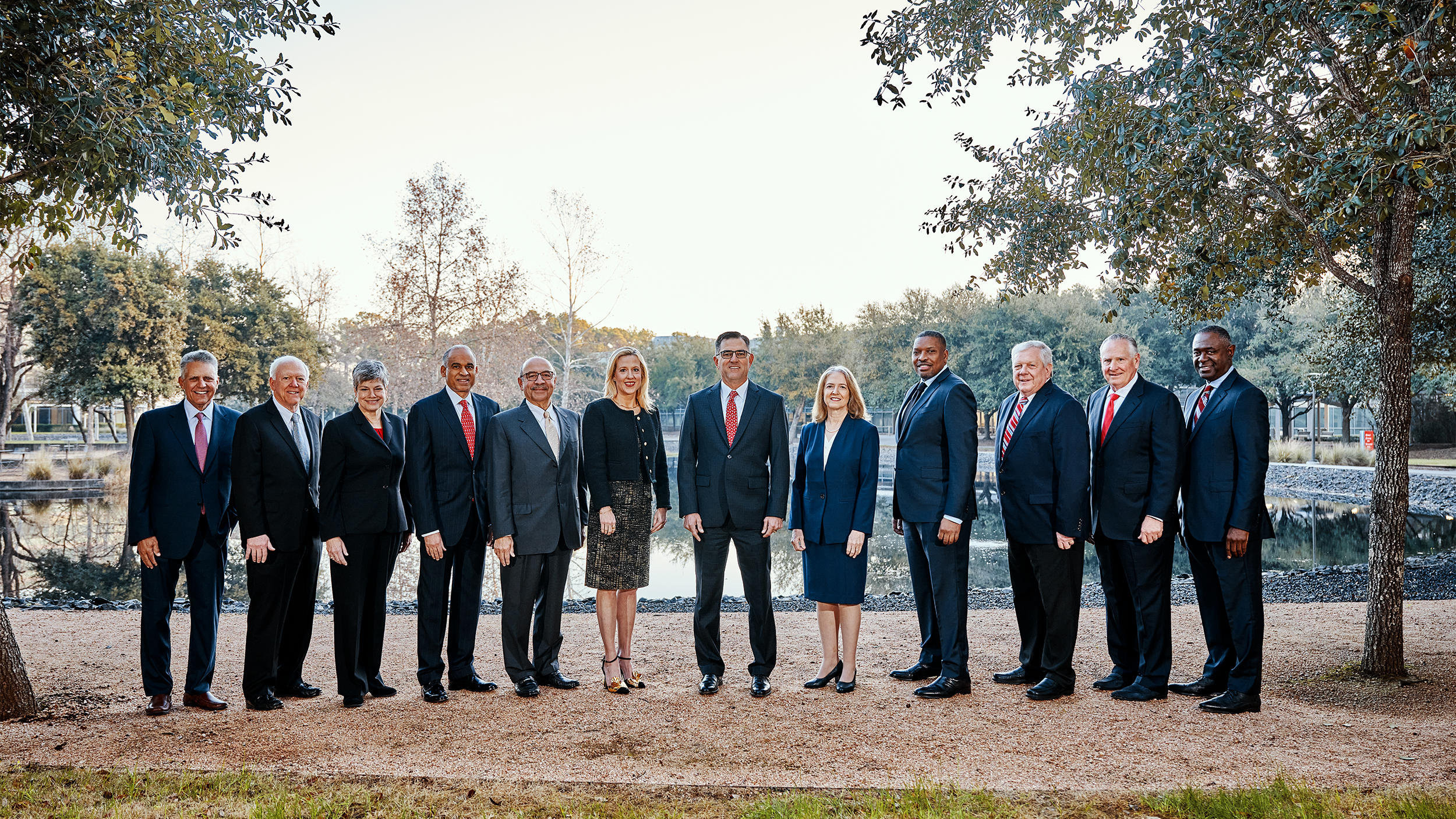 Search
Search
 Search
Search

In addition to Halliburton's Articles of Incorporation and By-laws, Halliburton's Board of Directors Corporate Governance Guidelines provide governance structure for our business. The Board reviews these guidelines on an annual basis.
Halliburton's Board of Directors oversees our longterm strategy. The Directors bring deep and diverse experience to their roles from a variety of industries that include energy, finance, science, technology, cyber, legal, human resources (HR), and HSE. The Board includes current and former chief executive officers of public and private companies and a former university president. The Directors' variety of professional backgrounds include academia, science, publicly and privately held businesses, government, startup entrepreneurship, and governance.
Chapters:
Corporate Governance
(1- Audit Committee; 2 - Compensation Committee; 3 - Health, Safety and Environment Committee; 4 - Nominating and Corporate Governance Committee)
*Mr. Patel notified the Board on January 6, 2025, of his intent to not stand for re-election at the 2025 Annual Meeting of Shareholders. He will serve as director until his term ends immediately prior to the Annual Meeting of Shareholders on May 21, 2025.
The Halliburton Board of Directors Nominating and Corporate Governance Committee conducts general oversight for governance and sustainability. However, each Board committee is responsible for different aspects of oversight (as outlined in each committee’s charter).
By regularly engaging with shareholders and other outside experts, the Board can more effectively prioritize relevant governance and sustainability matters in the Company’s overall corporate strategy. At least twice annually, the Board engages with shareholders to hear their perspectives and feedback. The Board also prioritizes these matters at each meeting through set agenda items. Shareholders have endorsed this oversight structure and other governance enhancements.
The following chart details the primary oversight responsibilities held by each of Halliburton's Board committees:
Halliburton's executive compensation program works to incentivize performance, maximize returns, and build shareholder value. It is integrated with our overall business strategy and management processes and is performance-based, at-risk, and long-term. Our longterm incentive plan includes relative performance measures, and our annual incentive plan combines financial and non-financial strategic metrics. For additional information, visit our 2025 Proxy Statement.
Sustainability means serving our customers, employees, stakeholders, and communities in an environmentally, socially, and ethically responsible way.
Globally, oil and gas remain critical sources of energy and will play essential roles in the world's pursuit of a lower-carbon future.
Our people are the heart of everything we do at Halliburton. The success of our operations is a result of the dedication of our exceptional employees, leaders, contractors, and suppliers.
VIEW PEOPLE